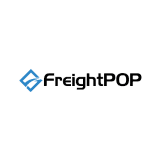What is a Freight Management Software?
A freight management software is a digital tool designed to help streamline freight processes, provide visibility for managers, and allow teams to view data to make better decisions for the company. Sometimes called a freight management solution, it encompasses a range of functionalities, including order processing, shipment tracking, inventory management, and route optimization. This type of software thus enables businesses to efficiently manage their supply chain by providing real-time visibility into freight movement, allowing for better decision-making and cost control.
Importance
Freight management is a tall task and it requires managers to keep tabs on various processes related to logistics and forwarding constantly. Conducting all these practices manually takes a lot of time and effort that could be spent doing other things. This is why many managers have adopted freight management software, which allows them to gain a full view of freight operations from a singular platform and improve their existing systems. It helps automate tasks such as freight booking, documentation, and invoicing, reducing manual errors and improving overall efficiency. This makes it easy to send instructions, check on vendors or carriers, and even make decisions to boost productivity and efficiency. If you’re looking to bring your freight management process into the modern world, it’s about time you adopta dedicated software designed for the job.
Key Features
Ultimately, choosing the right freight management software plays a crucial role in enhancing freight operations’ transparency, reliability, and efficiency for logistics and transportation businesses. While it’s always best to choose features based on the needs of your organization, there are some features that are must-haves in freight management software. These features include:
Shipment tracking
Inventory management
Route optimization
Automated documentation
Cost control and analysis
Choosing the Right Freight Management Software
Here’s a comparison of all the options mentioned above to make it easier for you to choose the best fit:
Freight Management Software | Free Version | Paid Plan | Mobile App |
SafetyCulture | Yes | $24/seat/month* | Yes |
ShipStation | Yes | $9.99/month | Yes |
FreightPOP | None | Contact vendor for pricing | None |
GoFreight | None | Contact vendor for pricing | Yes** |
FreightView | None | $99/month | None |
3G | None | Contact vendor for pricing | None |
MachShip | None | $549/month | None |
* billed annually** Android only









